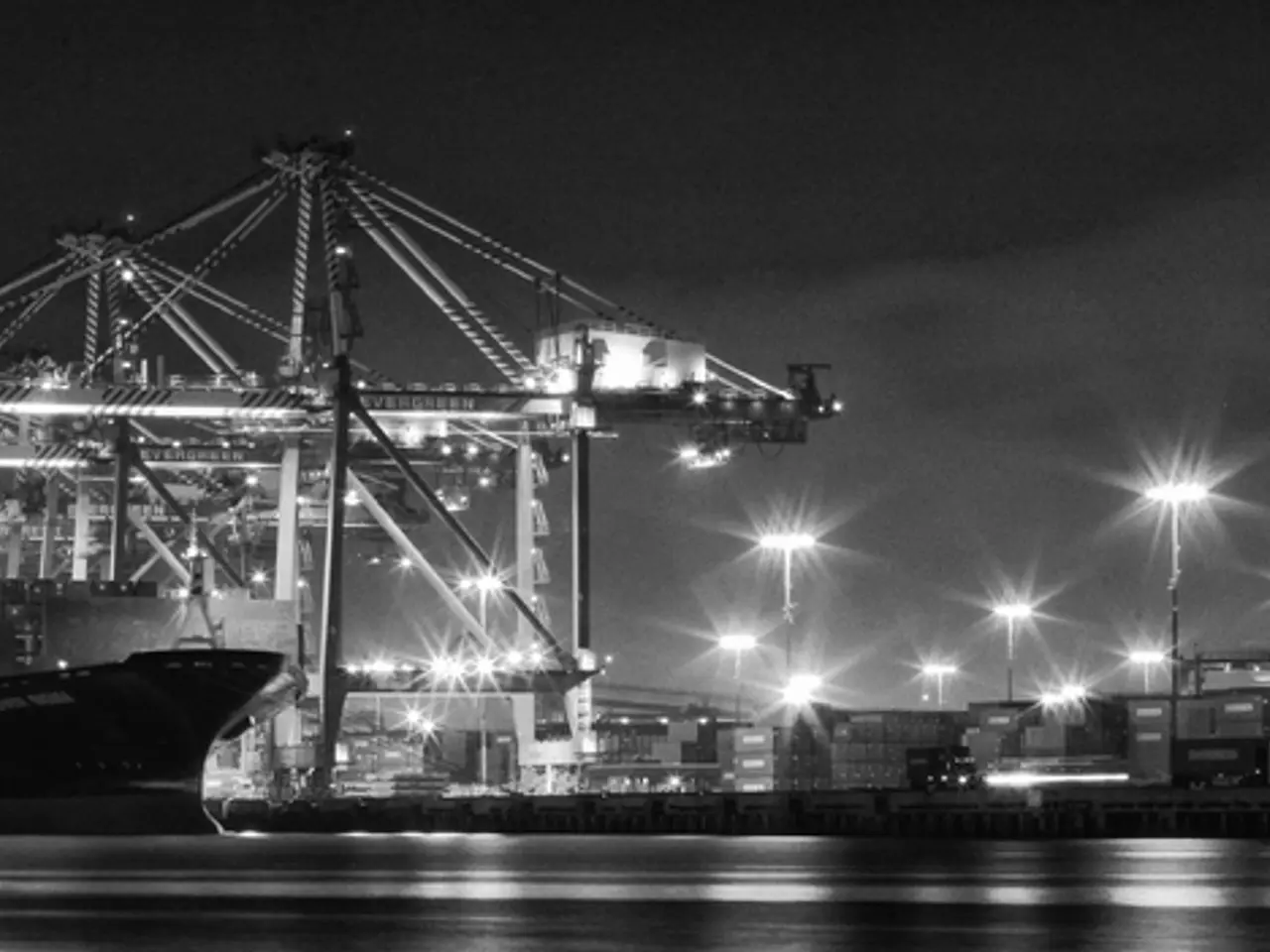Maritime Economy Guru Ploß: "Harbors are a Crucial Matter for Entire Nation"
- *
Ports of call aren't just a matter for coastal nations alone. - Harbor Matters for Inland Nations Too
The freshly-minted federal coordinator for the maritime economy and tourism, Christoph Ploß, is keen to inject more federal moolah into German harbors. "The feds should lend a stronger hand to the states here," the Hamburg CDU member of the German Bundestag told the " Welt am Sonntag ". The numbers haven't been named yet, but it's clear: "Harbors aren't only a concern for the coastal states up north."
Ploß: Harbor policy is a nationwide undertaking
Ploß considers harbor policy a nationwide endeavor, similar to how it's handled in the Netherlands or Belgium. In those countries, the whole policy is on board with the harbors. "Although the Basic Law gives harbor responsibility to the states, I'd love to see this perspective in Germany as well," underscored Ploß.
Up until now, the federal government has passed along 38 million euros annually for all German seaports combined. The industry and the five northern states are demanding up to 500 million euros in total. Ploß shared, "Over the long term, the federal government will have to significantly upgrade harbor infrastructure." This can be achieved through load balancing harbors, as well as promoting individual projects with a federal political seal of approval.
Harbors are logistical hubs for the military as well
"We need to view our harbors from a security policy perspective," said Ploß. With Germany's commitments within NATO, "harbors serve as logistical hubs in case of emergency, such as for troop deployments to a possible NATO eastern flank." Consequently, the infrastructure needs to serve military purposes as well, considering aspects like bridges and access roads that aren't often designed for transporting tanks or heavy equipment.
Ploß finds the current plans to replace the Köhlbrand Bridge in Hamburg's harbor by 2042 thoroughly embarrassing. "In other countries, such timelines are met with laughter." He couldn't specify a date, as the Hamburg's red-green Senate is in charge of the planning process. "However, across party lines, it ought to be crystal-clear: The Köhlbrand Bridge should be completed in the 2030s."
Political rivalries should stay off the soccer field
Ploß cautioned the northern states to team up and collaborate closely. "If the north isn't unified and, for example, Hamburg and Bremen see each other more as competitors than partners, it's detrimental to everyone," said the CDU member. The rivalry between Hamburg and Bremen belongs on the soccer field - but not in politics.
- Government Infrastructure Modernization
- Hamburg
- Tourism
- CDU
- Germany
- WamS
- Netherlands
- Belgium
Insights
In line with the new government's focus on infrastructure modernization, a significant portion of the federal budget (€166 billion over five years) will be allocated for transport investments and infrastructure upgrades. The National Harbor Strategy will benefit from this funding to secure the expansion of Germany's port infrastructure. The government intends to leverage private capital alongside public funding for these projects.
This commitment to harbor infrastructure reflects the government's view that ports are essential nodes in the country's overall transport and logistics network, impacting economic activity nationwide and requiring coordinated federal oversight and funding beyond just coastal states.
- "Christoph Ploß, the federal coordinator for the maritime economy and tourism, advocates for a more active role from the federal government in harbor policy, considering it a nationwide concern, similar to how it's handled in countries like the Netherlands and Belgium."
- "Ploß further emphasizes that ports serve not only economic purposes but also have significant implications for the country's security policy, as they function as logistical hubs in case of emergency, such as troop deployments to a possible NATO eastern flank."





